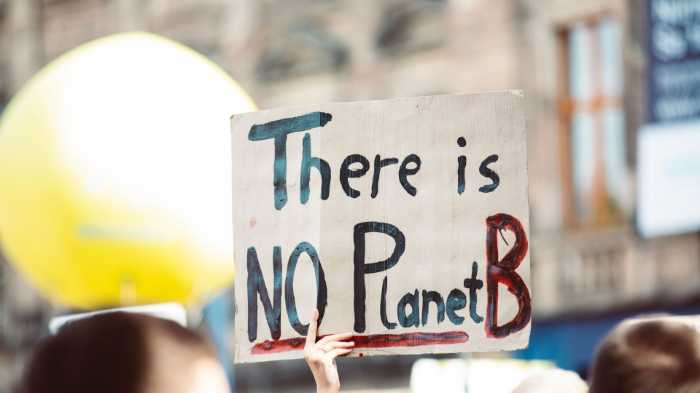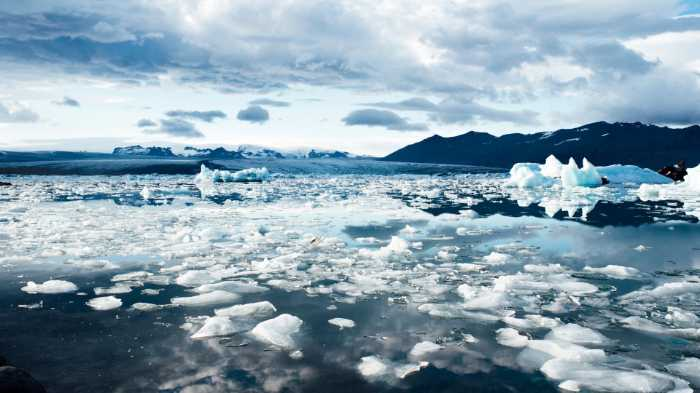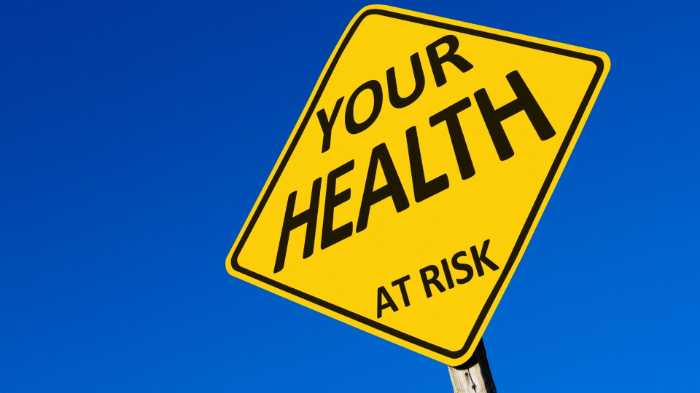
The United States is one of the largest contributors to climate change in the world. In this blog post, we will explore how much the US contributes to climate change, and what we can do about it. We will also discuss some solutions that could help mitigate the effects of climate change in the future.
- What is climate change?
- What is the US contribution to climate change?
- What are the effects of climate change on our planet?
- 1. Melting glaciers and ice caps
- 2. Extreme weather events
- 3. Health risks
- 4. Food shortages
- 5. Poverty and displacement
- How can we combat climate change?
- 1. Switch to renewable energy sources
- 2. Eliminate food-related greenhouse gas emissions
- 3. Reduce carbon dioxide from the transportation sector
- 4. Reduce energy consumption
- Conclusion
- FAQs
What is climate change?
Climate change refers to any long-term alteration in the earth’s climate. This includes changes in temperature, precipitation levels, wind patterns, ocean currents, humidity, and many other factors. In recent decades, climate change has become a major concern for scientists and policymakers. Rising global temperatures have led to melting ice caps, rising sea levels, severe weather events, and an increasing number of natural disasters.
Many experts believe that the worst effects of climate change can still be avoided if we act quickly and decisively to reduce our greenhouse gas emissions and mitigate their impacts. Whether or not we can reverse the effects of climate change remains to be seen, but it is clear that this is one of the most pressing issues facing humanity today.
What is the US contribution to climate change?
The United States is one of the largest emitters of greenhouse gases in the world. In 2016, the US emitted about 16.48 metric tons of carbon dioxide per person. This accounted for about four percent of total global emissions that year. The U.S. greenhouse gas emissions are only second to China.
In recent years, the US has made some progress in reducing its emissions. Between 2005 and 2016, US emissions decreased by about 12 percent. Similarly, in 2020, US emissions were 5,222 million metric tons, 11 percent lower than they were in 2019.
However, this is not enough to offset the country’s large contribution to climate change. If the US wants to make a significant dent in global emissions, it will need to do more to reduce its own output.
What are the effects of climate change on our planet?
Climate change is one of the most pressing issues facing our planet today. It is caused by a build-up of greenhouse gases in the atmosphere, which traps heat and causes the Earth’s temperature to rise. This has a number of effects on the environment, including:
1. Melting glaciers and ice caps

One of the most visible effects of climate change is the melting of glaciers and ice caps. As global temperatures continue to rise, these large masses of ice are rapidly disappearing, having a devastating impact on our planet. Not only does this decrease precipitation levels across different regions, but it also puts ecosystems at risk by disrupting the habitats and migration patterns of countless species.
In addition, the melting glaciers and ice caps contribute to rising sea levels, threatening coastal cities and low-lying islands. Clearly, this major shift in our global climate is one of the most significant threats facing our world today, and we must do everything we can to prevent its continued expansion.
2. Extreme weather events

One of the most significant effects of climate change on our planet is the increase in extreme weather events such as heatwaves, droughts, and heavy rainfall. These events cost us billions of dollars and thousands of lives every year. The steady rise in global temperatures has caused a spike in the number and intensity of these events, with serious consequences for people, animals, and ecosystems around the world. For example, prolonged periods of extreme heat can lead to exhaustion, dehydration, and even death for those who are not able to escape the scorching temperatures.
Additionally, droughts can cause severe water shortages as well as damage crops and plant life. Heavy rainfall can harm infrastructures like roads and bridges as well as cause massive floods that affect people’s homes and livelihoods. In short, extreme weather conditions are a clear sign that climate change is having a major impact on our planet today.
You can’t improve what you don’t measure.
Free Verified Carbon Calculators.
Erase Your Carbon Footprint in less than 5 Minutes
Personal Carbon Footprint Calculator
Business Carbon Footprint Calculator
3. Health risks

Climate change’s effects on human health are both direct and indirect. The direct effects include hypothermia from cold snaps, heatstroke from heat waves, and more injuries and fatalities due to extreme weather events such as hurricanes, floods, and tornadoes. The indirect effects are those that arise indirectly from climate change, such as increases in air pollution and the spread of disease-carrying insects into new areas.
Climate change also amplifies preexisting health risks. For example, rising temperatures lead to an increase in ground-level ozone, a pollutant that can trigger asthma attacks, respiratory infections, and heart disease. Warmer temperatures also cause more frequent and intense wildfires, which release harmful smoke particles into the air that can cause respiratory problems and aggravate heart conditions.
Additionally, longer and hotter heatwaves put people with heart conditions and other chronic illnesses at greater risk for heatstroke and other health complications. As climate change continues to alter our planet’s environment, it is increasingly important to be aware of the ways it might impact our health so that we can take steps to protect ourselves and our loved ones.
4. Food shortages

One of the major effects of climate change on our planet is food shortages. As average temperatures and global rainfall patterns shift, many regions are experiencing increasingly unpredictable weather patterns and intense storms. This, in turn, is having a huge impact on vital agricultural regions, making it more difficult for farmers to grow crops or raise livestock.
Over time, these food shortages can have serious consequences for all living things on earth, as they could lead to increased rates of famine and hunger in some parts of the world. With growing populations already placing tremendous strain on limited resources, trying to feed everyone will be an increasingly difficult challenge in the years to come. However, if we work together to address this urgent issue head-on, there may still be hope for our planet’s future.
5. Poverty and displacement

Climate change is already having a major impact on our planet, and the consequences are only going to become more severe in the years to come. One of the most devastating effects of climate change is poverty and displacement. Rising sea levels are flooding coastal communities and putting freshwater sources at risk, making it difficult for people to grow crops or access clean drinking water.
Extreme weather conditions are destroying homes and livelihoods, forcing people to abandon their communities in search of safety. As climate change creates new deserts and destroys existing ecosystems, it will only become harder for people to find food and shelter. In the face of all these challenges, poverty and displacement will only become more common in the years to come. If we want to protect our planet and its inhabitants, we need to take action now to mitigate the effects of climate change.
How can we combat climate change?
Climate change is a global problem, and its effects are already being felt around the world. The United States is one of the largest emitters of greenhouse gases, and so we have a responsibility to take action to combat climate change. There are many things we can do to reduce our impact, including:
1. Switch to renewable energy sources
There are many different ways to combat climate change, but one of the most effective is to switch to renewable energy sources such as solar and wind power. These energy sources are clean and sustainable, meaning that they do not release any harmful emissions into the atmosphere. They also harness natural resources that we already have plenty of, so there is no risk of running out anytime soon. By making the switch to renewable energy sources, we can help reduce our collective carbon footprint and ensure a better future for generations to come.
2. Eliminate food-related greenhouse gas emissions
One effective way to combat climate change is to significantly reduce our food-related greenhouse gas emissions. This can be done by shifting away from intensive animal farming and the overconsumption of meat, dairy, and other animal-based products, and towards a diet that is focused on plant-based foods instead. Not only does reducing our reliance on meat and other animal products help to slow the growth of global warming, but it also has a number of important health benefits as well.
For example, studies show that a plant-based diet is linked to lower rates of heart disease, diabetes, and certain types of cancer. Overall, switching away from animal products represents a simple yet powerful way for each of us to make a significant impact in combating climate change.
3. Reduce carbon dioxide from the transportation sector
Reducing carbon dioxide emissions from transportation is one of the most effective actions that individuals and industry leaders can take to combat the effects of climate change. There are many ways to accomplish this, including driving less, carpooling, taking public transit, and purchasing electric or hybrid vehicles. For example, by switching from a gasoline-powered car to an electric vehicle, drivers can reduce their transportation emissions by as much as 75%.
Additionally, smart choices in public transit and in bike-share programs can also go a long way in reducing emissions and improving air quality. Ultimately, if we work together to scale back our dependence on burning fossil fuels in all areas of transportation, we can make a meaningful impact on climate change and protect our planet for future generations.
4. Reduce energy consumption
One way to help reduce the number of greenhouse gases in the atmosphere is to consume less energy. This can be done in a number of ways, such as using energy-efficient appliances, insulating your home, and driving less. By reducing our energy consumption, we can help slow down the effects of climate change and make the planet a healthier place for generations to come.
These are just a few of the many things we can do to combat climate change. It’s important that we all take action because leaving it up to others won’t be enough to solve this global problem.
Conclusion
The United States has a responsibility to take action to combat climate change. We can do this by switching to renewable energy sources, eliminating food-related greenhouse gas emissions, reducing carbon dioxide emissions from transportation, and reducing our energy consumption. It’s important that we all take action to help reduce the effects of climate change because the future of our planet depends on it. Moreover, after pulling out of the Paris climate agreement, the United States has a moral obligation to do its part in combating this global problem.

FAQs
How much do the electric power sector emissions contribute to global warming?
The electric power sector contributes a significant amount to global warming. In fact, emissions from the electric power sector account for about 25% of all U.S. greenhouse gas emissions, according to the Environmental Protection Agency. The majority of these emissions come from burning coal to generate electricity. As electricity demand increases, so does the need for coal-fired power plants. However, there are many other ways to generate electricity, including renewable sources like solar and wind power. As we increase our use of renewable energy, we can help to reduce the electric power sector emissions and slow the effects of global warming.
What is the impact of natural gas on greenhouse gases?
Natural gas is a significant energy source for many residential and commercial sectors and electricity generation. It is also a major driver of U.S. greenhouse gas emissions. According to the Regional Greenhouse Gas Initiative, natural gas accounts for about 30% of total U.S. GHG emissions. Other greenhouse gases are emitted when natural gas is extracted, transported, and used as an energy source. When burned for electricity generation, natural gas emits less carbon dioxide than other fossil fuels, but it still contributes to climate change.
Natural gas is also used in many commercial sectors, such as manufacturing, food processing, and glassmaking. In these industries, natural gas is used as a heat source for various processes. Burning natural gas for heat releases large amounts of carbon dioxide and other air pollutants into the atmosphere. Reducing the use of natural gas in these sectors would help to reduce greenhouse gas emissions by a margin.
What is the average energy consumption of a US household?
The average U.S. household consumed about 10,715 kilowatt-hours (kWh) of electricity in 2020, according to the U.S. Energy Information Administration. This is about an average of 893 kWh per month. Electricity consumption varies depending on the size and type of household, as well as the climate. For example, households in colder climates tend to use more electricity for heating, while households in hotter climates use more electricity for cooling.
What is fossil fuel combustion in the transportation sector?
Fossil fuel combustion in the transportation sector is a significant contributor to carbon dioxide emissions. In 2020, it accounted for about 18 percent of total U.S. emissions, making it the second-largest emitting sector after the power sector.
If we consider per capita emissions, transportation sector emissions have been relatively flat over the past few decades, even as the number of vehicle miles traveled has increased. This is due to improvements in fuel efficiency. However, total emissions from the transportation sector have continued to grow as the population and economy have expanded.

Dean Emerick is a curator on sustainability issues with ESG The Report, an online resource for SMEs and Investment professionals focusing on ESG principles. Their primary goal is to help middle-market companies automate Impact Reporting with ESG Software. Leveraging the power of AI, machine learning, and AWS to transition to a sustainable business model. Serving clients in the United States, Canada, UK, Europe, and the global community. If you want to get started, don’t forget to Get the Checklist! ✅
